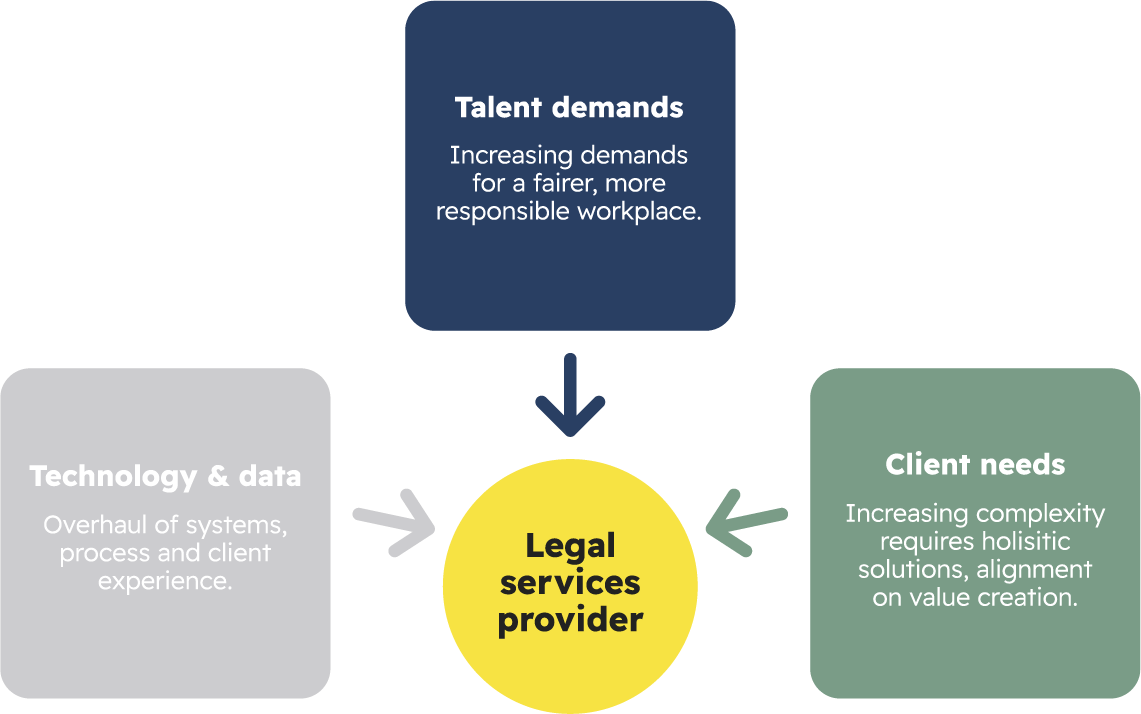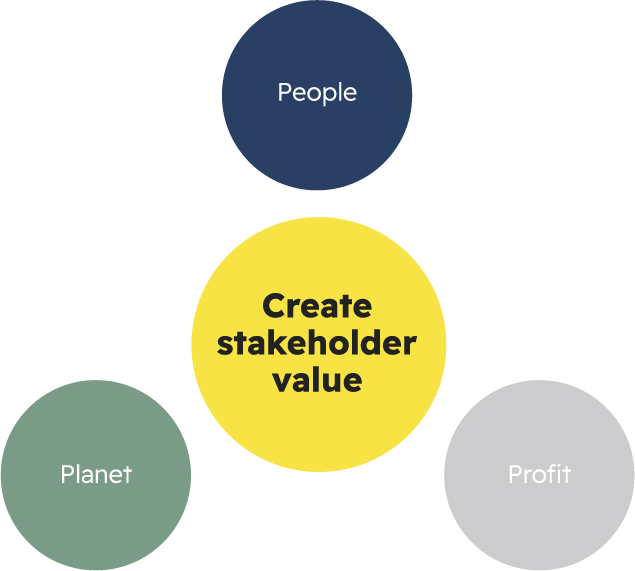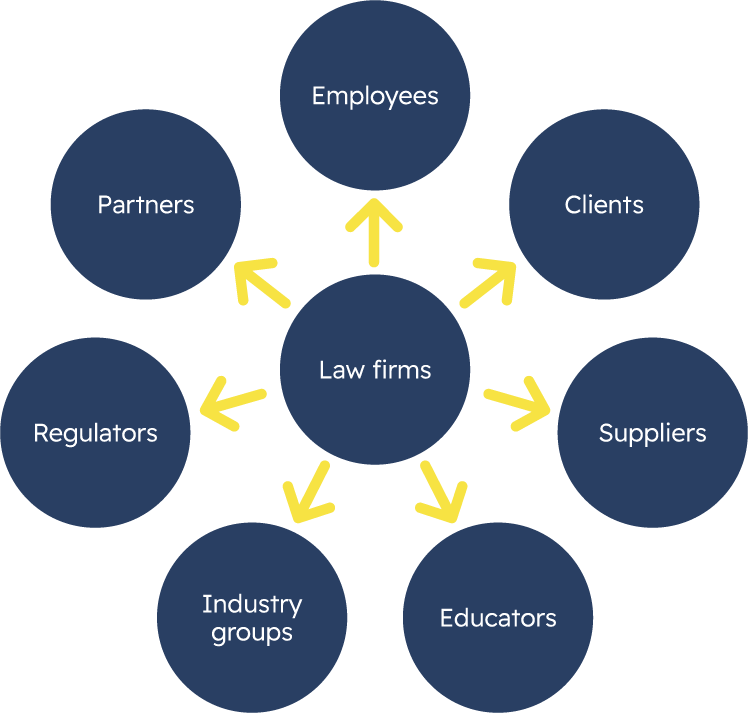Striving for a sustainable future

The legal industry has a critical role to play as the world pursues a sustainable future. Firstly, firms are in a unique position to be a driving force in encouraging and supporting clients to transition their businesses through the changes required. Secondly, firms themselves need to be exemplary in how they operate, embracing ESG in authentic and effective ways that will enable greater impact to be made across a broader range of stakeholders - ultimately, sustaining their future success.
This website will continue to grow to house a range of different content and perspectives, covering topics from environmental impact, stakeholder value creation and adapted governance strategies to future-proof firms. We'll have contributions from law firm management, lawyers in private practice, senior in-house counsel, legal educators and legal commentators.
If you're interested in contributing content, please contact [email protected]
Big Trends Facing the Legal Industry
Three big trends are shaping the future law firm and challenging some of its most fundamental ways of working.

Technology & data
The first, undoubtedly, is technology and data. As systems become smarter and the digitization of legal work becomes more mainstream, the way lawyers work will change forever. There will always be a need for lawyers, but it will focus on their uniquely human skills, such as judgement and negotiation – understanding the human on the other side, who isn’t always logical.
Talent demands
The second is the growing demands of talent. We’ve heard already about the mental health issues, the constant leaky pipe of diverse talent, and increasingly, non-diverse talent, as they seek more meaning from their work and a different work/life experience.
Client needs
And the third is client needs. Clients are facing unprecedented challenges to their business models and to their governance. They need increasingly holistic solutions, they need advisors who are aligned with their goals.
The backdrop of the last decade has been increasing success, but as law firms look forward, the ability to achieve sustainable success, that continues to attract the talent and the clients they need, will require significant change.
The future firm will seek the triple bottom line

The triple bottom line (John Elkington in 1994) is a famous model taught by sustainability academics which describes a new shift in the goals of sustainable organisations. The model identifies that, to date, we have wrongly assumed that we will have infinite access to most resources, for example endless sources of talent or safe weather conditions, and that money was the only scarce resource. This model tips the balance back to a more sustainable model.
It predicts that organisations at large, will migrate from a ‘shareholder first’ ideology, to a ‘stakeholder first’ ideology – prioritising, more equally, people, planet and profit.
For law firms, of course, that means redefining the measures of success, moving beyond the singular focus on profit per partner, to measures such as people engagement, wellbeing, client value creation and impact on society.
To achieve this shift in a material way, the model will need to go through transformative change.
Collaboration is an essential enabler of systemic change
Few changes can be achieved by just changing policies, hiring people or buying a technology solution. People’s hearts and minds need to change, entrenched behaviors need to evolve and we need to work across the stakeholder silos to make these changes stick.

Stakeholders need to work together to challenge and rethink:
- How clients make demands – what is fair and reasonable? What is effective and efficient?
- How law firms charge – can they charge on the basis of a Service Level Agreement (SLA) to incentivise the right behaviours on both sides? Can they better align value creation and team goals?
- How law firms manage their people – do targets and performance criteria incentivise the right behaviours? Are people encouraged and rewarded for working in teams?
- Does the industry work as an efficient ecosystem – does each organisation play to its organisational strengths and work with complementary service providers to deliver work in optimal ways? Can the industry conform around standards and templates to enable technology to play a greater role and efficiencies to be embedded?
- Are legal educators creating sufficient modern, diverse talent? Is it accessible? Do students work in teams? Are they gaining broad enough skills and are they building awareness and appreciation of the other skills necessary to deliver an effective, modern service?

